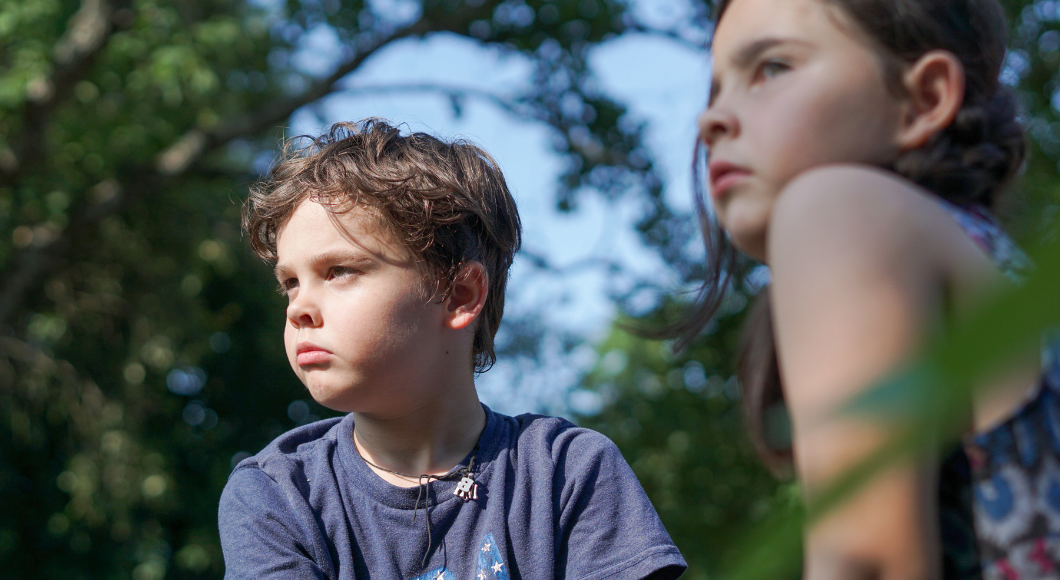As a psychologist specializing in trauma, I’ve heard some of the most heartbreaking stories of childhood abuse and neglect in my career. Not surprisingly, these experiences do deep damage to the children who experience them, and the emotional trauma and impact of these experiences can echo across the canyons of these children’s adult lives.
But there’s another, much more subtle form of emotional trauma that many more children experience. And it, too, can have far-reaching and long-lasting effects. It shows up in my office in various forms: anxiety, depression, low self-esteem, eating disorders, relationship problems, substance abuse, personality disorders, and more.
While those may be the diagnoses, a primary underlying cause is often chronic emotional invalidation.
What Does Emotional Validation Mean?
Emotional invalidation is when a person’s feelings and experiences are rejected, ignored, or punished. We’ve all experienced this to varying degrees. But for those who experience it often, particularly from primary caregivers, the damage can be significant.
How does this show up in everyday parenting?
“Stop crying! It’s not that big a deal.” (Your pain doesn’t matter.)
“If you don’t stop wailing, I’m going to take away [insert favorite toy].” (If you acknowledge this painful feeling, you’ll be punished.)
“Don’t feel sad. Look over here. Isn’t this funny?” (Only positive emotions are okay to acknowledge, so get rid of those painful ones as quickly as possible.)
“Don’t be mad. You’re fine. It’s just a broken cookie.” (You’re too sensitive; ignore your anger.)
In isolation, none of these statements will do much damage. But the meanings behind them, when repeated over time, certainly can cause emotional trauma. The underlying messages are:
- Painful feelings bad, positive feelings good.
- Don’t express anything that will make ME (the adult) uncomfortable or embarrassed.
- Don’t express a reaction or emotion that I (the adult) don’t share.
- Some feelings are NOT safe to express.
Why Emotional Validation Matters
Children who are repeatedly told (either verbally or behaviorally) that their emotions and experiences are invalid or unimportant often:
- Feel misunderstood and unheard.
- Believe they are inadequate or believe they are only worthy when they are pleasing others.
- Feel angry and resentful and can take on a chronic “victim mentality.”
- Develop a very distorted understanding of their emotions, raising their risk for coping in unhealthy ways (e.g. substance abuse, avoidance, isolation, risk-taking, over/under-controlled eating, etc.)
- Have significant difficulty understanding healthy boundaries in relationships, tending to violate others’ boundaries or allowing others to violate their own boundaries.
- Have difficulties empathizing with others or understanding other people’s emotions accurately.
- Can learn to “ignore” or “deny” certain emotional experiences such that these feelings build up and become toxic to the person themselves or express themselves in toxic ways onto others.
- Have a very unstable sense of themselves or develop a negative or fragile self-esteem.
Backing up, it makes a lot of sense. While we are all born with access to the full range of emotions, what we learn about these feelings varies widely depending on the family, community, and time period we are born into.
Stated simply: The better we understand our emotions and internal experiences, the better equipped we will be to healthfully navigate whatever life throws our way. The experience of being emotionally validated is the foundation of this “emotional IQ.”
When we validate children’s emotions, we inherently tell them that their internal experience is real and matters. The more consistently we do this, the more that child will experience a sense of feeling seen, heard, understood, and emotionally safe. That safety has endless benefits.
When ALL emotions are treated as normal and understandable, we learn it’s safe to express them, approach them, and learn how to cope with them in productive ways. When some or all emotions are treated as wrong or abnormal, we learn to mask, subvert, and deny them, creating loads of additional suffering and destruction.
How to Validate Emotions
So how can we healthfully validate our kiddos’ emotions and experiences?
- Empathy. While a broken cookie may not seem like the world’s end to us, to a toddler it can certainly feel that way. If we operate on the assumption that ALL emotions are valid, we can seek to understand (instead of blame or change) when our kids express a strong feeling.
- Name it to tame it. I’m repeatedly amazed by how many adults, particularly men, have never learned the words to describe their emotional or internal experiences. When we reflect our children’s emotions back to them in words, we not only serve as a mirror to help them recognize their feelings, we also give them the critical language to describe, interpret, and process their internal worlds.
- Seek to understand yourself first. Most of the time we unconsciously invalidate emotions in our kids that were first invalidated or punished in us. So ask yourself first, “What emotions were safe or not safe to express in my home growing up? What feelings make ME uncomfortable or which feelings do I seek to get rid of or control in myself? What emotional trauma have I experienced?” Odds are, the answers to these questions will lend some insight into the emotional messages we may inadvertently communicate to our kiddos.
- You can validate an emotion without condoning or validating a behavior. A huge task of childhood is learning HOW to respond to emotions in effective, non-damaging ways. We can help kids learn this by separating emotions (not in our control) from behaviors (somewhat in our control). For example, “It’s okay to feel jealous, but it’s not okay to steal your cousin’s toy,” or “I see that you’re mad, and that’s okay. When you’re calmed down we can talk about better ways to show me that you’re mad.”
- It’s never too late to change the message. Emotional learning tends to trickle down through families across the generations. You, yes you, can change the emotional tide for your children and their children for generations on. You can do it!















I agree with everything except we don’t need to tell kids which behaviors are appropriate and which ones are not. They, in a completely emotionally safe environment, can tell, for themselves, right from wrong without parents saying anything. I cannot stress this enough. They already know; it’s the emotionally unsafe environment that creates the so-called counterproductive behavior. it is NOT inherent. Telling them prevents them from using what they already know. Children are already perfect; it is we, that make them imperfect. We have to realize this URGENTLY. Emotionally safe children will NEVEr misbehave. It took me a long time to realize this, and I’m sad that we haven’t realized this as a society yet